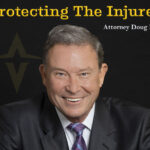We have addressed the risks of distracted driving numerous times on this blog. Defined as operating a motor vehicle while simultaneously using an electronic communications device to talk or write text messages, distracted driving is a factor in numerous automobile accidents in Kansas, Missouri, and around the nation. Regulatory responses to distracted driving have varied around the country, with some cities and states banning certain types of cell phone use while driving, some imposing no restrictions at all, and a federal agency calling for a total ban on all non-emergency cell phone use while driving, even with a hands-free device. A few local governments have enacted total bans on non-emergency cell phone use by drivers, but at least one such ban has already met with a judicial injunction.
Distracted driving played a role in at least three thousand fatal automobile accidents in 2010, according to the National Transportation Safety Board (NTSB). A series of fatal accidents, including a 2010 multi-vehicle accident in Missouri that killed two people and injured thirty-five, prompted the NTSB to recommend a total ban on non-emergency cell phone use by drivers in all fifty states and the District of Columbia. So far, no state has enacted such a ban, but several cities have.
The city of Chapel Hill, North Carolina became the first municipality in the country to ban all cell phone use while driving, even with hands-free devices, on March 26, 2012. Supporters hailed the ordinance as a critical step in fighting distracted driving, while critics challenged the city’s authority to enact such a ban. Local businesses worried about its effect on the local economy, as it would make communication more difficult for people who spend much of their days traveling. The ordinance was scheduled to take effect on June 1, 2012, but an intervening court case has changed that.
A towing company filed suit to block enforcement of the cell phone ban, arguing that the city towing ordinance requires tow truck drivers to use cell phones while driving in order to respond to consumer inquiries about towed vehicles and to enable people access to their vehicles. Enforcement of the cell phone ban, the company alleged, would make it impossible for it to legally transact business. A judge agreed, granting a temporary injunction blocking enforcement of the ban on May 2.
The Chapel Hill Town Council has since made adjustments to the city’s towing ordinance, attempting to establish specific times or conditions when tow truck drivers may return telephone calls from towed vehicle owners. At a Council meeting on May 14, council members amended the towing ordinance to allow tow truck drivers to return calls within fifteen minutes of receiving a voicemail message. Changes so far have not placated opponents of the cell phone ban, and the injunction remains in effect.
Kansas City auto accident attorney Doug Horn advocates safe driving and represents the rights of people who have suffered injuries or lost loved ones in auto accidents. For a free and confidential consultation, contact us today online or at (816) 795-7500.





